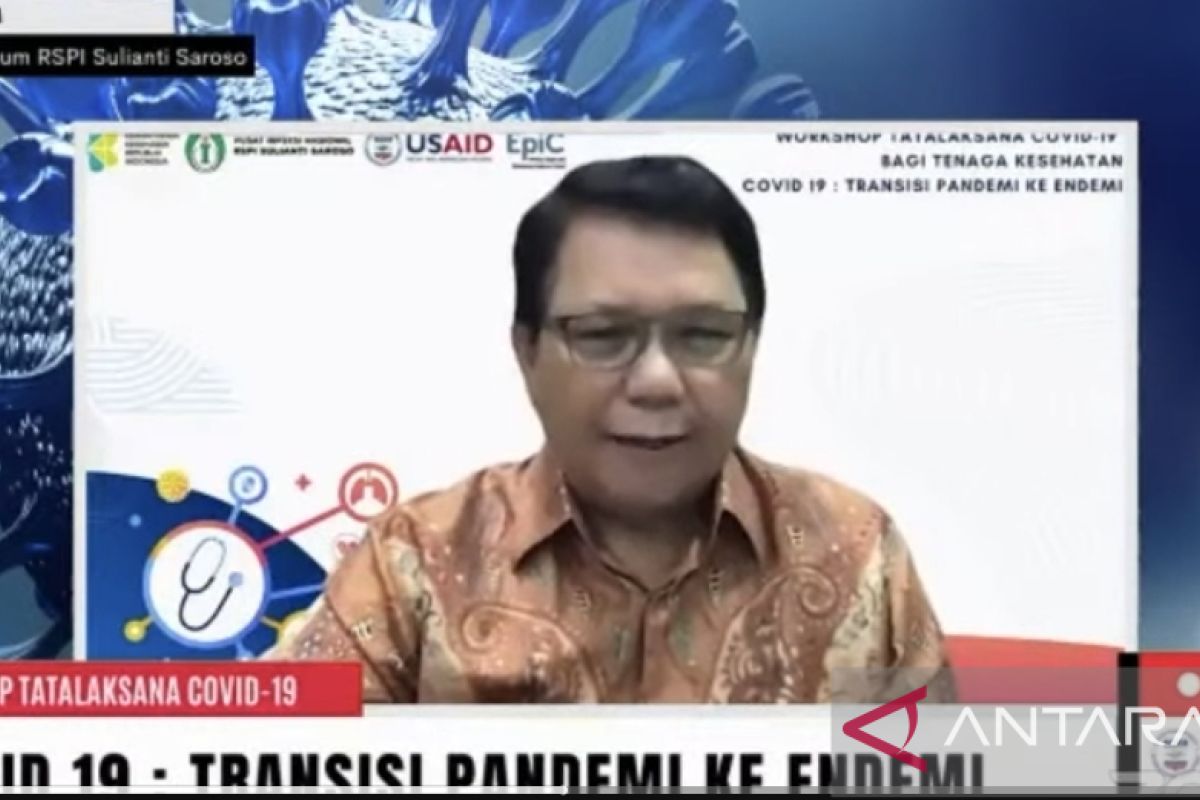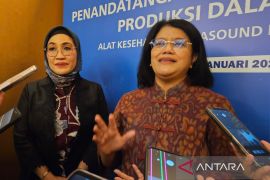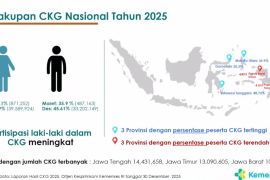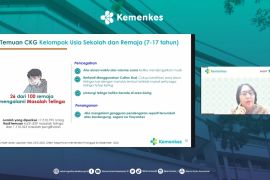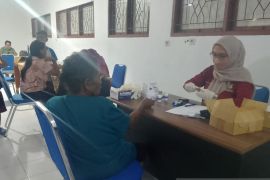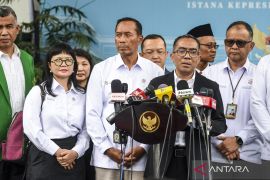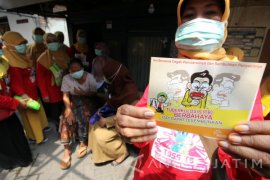"I remind the public that there are diseases that need to be monitored other than COVID-19 and long COVID that are now being experienced by around 30 percent of the survivor population in Indonesia," the ministry's spokesperson, Mohammad Syahril, said during the Transition Workshop from Pandemic to Endemic in Jakarta, Friday.
The diseases that necessitated monitoring included Polio, for which the government has currently set the status of an Extraordinary Event (KLB) in Pidie, Aceh Province, despite Indonesia having removed that status in 2014.
The Ministry of Health, in November 2022, announced a case of Polio in a child aged seven years in Pidie District. From the test results, the child had Polio Virus Type 2 and Sabin Type 3.
According to the official website of the Indonesian Health Ministry, no medicine is currently available to cure polio.
However, treatment can still be administered to patients to relieve symptoms. One of the treatments is physical therapy that can be useful for stimulating the muscles.
The second disease is measles. The outbreak was reported in the 12 provinces of Aceh, West Sumatra, Riau, North Sumatra, Jambi, West Java, Banten, Central Java, East Java, North Kalimantan, East Nusa Tenggara (NTT), and Papua.
The number of cases reportedly reached 3,341, Syahril said.
"Also beware of other communicable and non-communicable diseases, especially acute kidney disease that we are still monitoring," he emphasized.
Two cases of Atypical Progressive Acute Kidney Disease (GGAPA) this year were found in Jakarta. One of the patients died while the other has recovered, Syahril noted.
With the addition of new cases of GGAPA reported, as of February 5, 2023, there were 326 cases of GGAPA and one suspect in 27 provinces in Indonesia. Of these, 116 cases were declared cured, he stated.
The last disease that deserves attention is the trend of increasing cases of diabetes mellitus in children in Indonesia. The Indonesian Pediatric Association (IDAI) reports that the number of patients until January 2023 has reached 1,645.
Cases of type 1 diabetes mellitus in children have increased 70 folds, from 2010 to 2023, with reference to reports from 13 cities in Indonesia.
Diabetes is divided into two types, namely type 1 and 2 diabetes. In the case of type 1 diabetes, the child's body can no longer produce the hormone insulin that is useful for controlling blood sugar levels.
Meanwhile, type 2 diabetes is a more severe condition, in which the metabolism and process of converting sugar into energy in the body get disrupted.
Related news: Be wary of communicable diseases during seasonal transition: official
Related news: Jakarta recommends non-drug therapy to prevent acute kidney disease
Translator: Andi Firdaus, Resinta S
Editor: Tia Mutiasari
Copyright © ANTARA 2023
